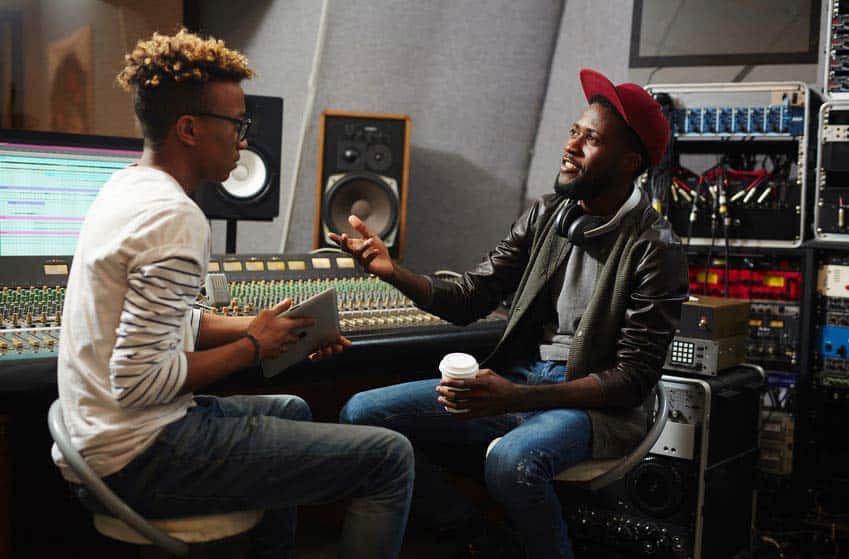Most career paths will see people moving from one position at a certain company to another by applying to job listings, but for Producers, this simply isn’t the case. People rarely post ads looking for a Producer, and if they do, it’s likely very much an entry-level position so after a while in the business, it’s no longer appropriate.
Most Musicians, Writers, Producers, Mixers, Engineers, (and almost everyone else in the music world) secure jobs because of who they know. This isn’t to say unqualified people end up in roles or with jobs they’re not ready for based on friendships (well, not usually), but the vast majority of people who make their living in these kinds of career paths get where they are based on word-of-mouth and recommendations.
You’ll end up spending a lot of time getting to know people, making friends, and following up with acquaintances via any method possible (likely social media, which we’ll cover next), as you never know who will get you an interview or suggest you for some type of paying gig.
This isn’t to say all friendships in the music industry only exist so people can use one another, but rather you’ll rely on those you’re close with to talk you up and help you advance in your career and you’ll be expected to do the same for them.
